MercoPress. South Atlantic News Agency
Tag: Lava Jato
-
Thursday, September 7th 2023 - 10:35 UTC
Lula's imprisonment “a big mistake” rules Brazil's STF
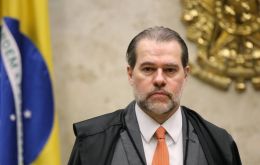
Brazil's Supreme Federal Court (STF) ruled Wednesday that the evidence gathered in the Lava Jato case against Luiz Inácio Lula da Silva must be suppressed because it was obtained illegally by then-judge Sergio Moro. The STF also said that the current president's imprisonment in that case was a mistake.
-
Friday, May 26th 2023 - 09:55 UTC
Brazil: All STF members to decide on Collor's sentence
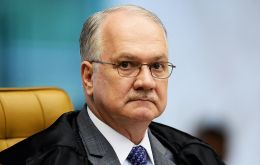
Brazil's Supreme Federal Court (STF) Thursday decided that all of its justices will vote on May 31 on the length of the sentence to be imposed on former Senator and President Fernando Collor de Melo, who has been found guilty of passive corruption and money laundering in Operation Lava Jato, Agencia Brasil reported.
-
Saturday, April 29th 2023 - 10:11 UTC
Lava Jato scandal: Marcelo Odebrecht serves out his prison sentence
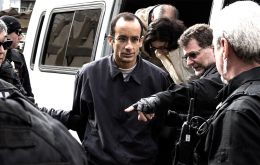
Businessman Marcelo Odebrecht has been fully released from jail in Brazil Friday after serving his sentence for corruption, illicit association, and money laundering that went public in the Operation Lava Jato scandal. He had been doing community work at a hospital in exchange for a sentence reduction.
-
Friday, April 29th 2022 - 09:42 UTC
UN Committee agrees Lula's conviction was against the law

As incumbent President Jair Bolsonaro keeps closing in on the former head of State Luiz Inácio Lula Da Silva ahead of this year's Oct. 2 elections, the United Nations Human Rights Committee Thursday ratified the PT leader's tights had been violated when he was tried and convicted for corruption in another episode of the Lava Jato saga.
-
Thursday, November 18th 2021 - 09:55 UTC
Moro wants to become Brazil's “third way” amid polarization, despite being a Bolsonarist option

Former Lava Jato Judge Sergio Moro said he was “ready” to challenge President Jair Bolsonaro and former President Luiz Inácio Lula Da Silva in the October 2022 elections.
-
Thursday, March 25th 2021 - 07:14 UTC
Sergio Moro's ruling on Lula was biased, says Brazil's Supreme Court
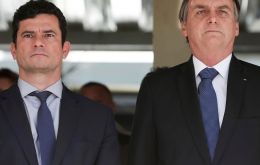
In a 3-2 split ruling, Brazil's Supreme Court Tuesday determined that Judge Sergio Moro's sentencing of former President Luiz Inácio Lula Da Silva (2003-2011) on corruption charges in the Lava Jate case was biased.
-
Tuesday, March 9th 2021 - 09:55 UTC
Retrial of Lula da Silva makes him a formidable rival for Bolsonaro's reelection; financial markets rattled

The decision to annul former president Lula da Silva's conviction had an immediate effect in financial markets and scrambled forecasts for the 2022 Brazilian presidential race, with many investors betting it would polarize voters between right-wing populist president Jair Bolsonaro, and Lula, a left-wing populist but also his greatest opponent.
-
Thursday, February 4th 2021 - 09:32 UTC
Brazil ends the Car Wash anti corruption unit, which sent top politicians and business leaders to jail
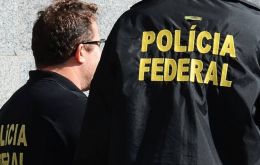
Brazil’s Car Wash anti-corruption unit has officially been disbanded putting an end for a team of prosecutors that sent dozens of Brazilian and regional political and business leaders to jail, including several former presidents.
-
Saturday, May 2nd 2020 - 07:25 UTC
The Economist: Brazil's Jair Bolsonaro dangerous divorce

On April 19, Brazil’s president, Jair Bolsonaro, climbed onto a truck outside army headquarters in Brasília to fire up protesters who were calling for a shutdown of Congress and the Supreme Court. Soon after, according to Folha de S. Paulo, he learned that federal police were investigating allegations that one of his sons, Carlos, runs an online fake-news network that may have inspired the protest.
-
Monday, February 10th 2020 - 10:34 UTC
Francis expected to receive ex president Lula at the Vatican next Thursday
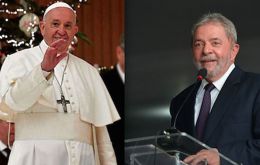
Pope Francis will receive former Brazilian president Lula de Silva next February 13, according to reports advanced by the country's media and later confirmed by Lula in his twitter account.
